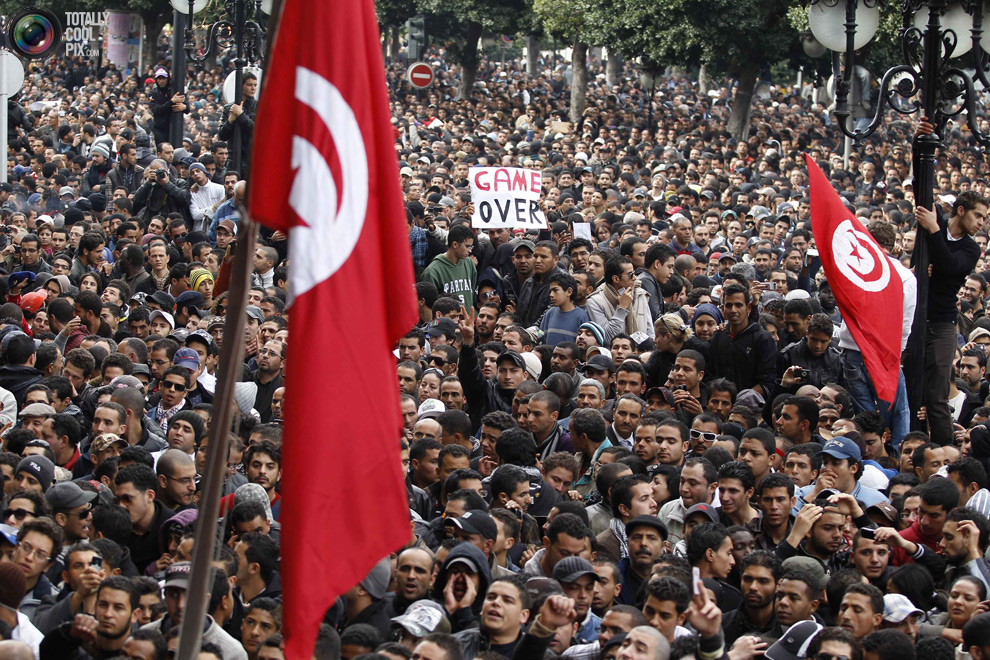On this day in 2011, following twenty-eight days of mass uprising in Tunisia, President Ben Ali formally resigned, marking a new period of democratic reforms in the country. Ben Ali successfully evaded arrest by fleeing to Saudi Arabia.
The protests were sparked in part by the self-immolation of Mohamed Bouazizi, a disgruntled street merchant whose wares had been seized, on December 17th, 2010. In the month that followed, hundreds of thousands of Tunisians poured into the streets, clashing with police.
338 people were killed, including one journalist who was hit in the head with tear gas fired by police. 2,147 were injured, according to the Associated Press.
28 days after the protests began, Ben Ali fled to Saudi Arabia and officially resigned from his post. Despite being tried in absentia, Ben Ali successfully evaded arrest in Saudi Arabia, dying there in 2019 at the age of 83.
After Ben Ali was ousted from power, the police and army defected from the state and sided with protesters. Labor unions, such as the UGTT, also played an integral role in organizing the mass protests.
Despite achieving a more democratic government, Tunisia remains in political crisis. On July 25th, 2021, amid ongoing anti-government protests, President Kais Saied suspended parliament, dismissed the Prime Minister, and withdrew immunity of parliament members.
